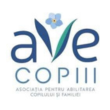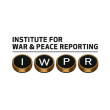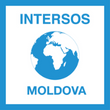Organizații vizate:
Achiziții de bunuri și contractări de servicii
- Detalii
- Categorie: Achiziție bunuri, Contractare Servicii
Extended Terms of Reference for conducting a comprehensive needs and resources assessment in Floresti rayon
Informațiile prezentate în articolul de mai jos pot să nu mai fie actuale sau să nu mai reflecte activitățile și programele curente. Anunțul este păstrat în arhivă pentru a asigura transparența și accesul public la informațiile despre inițiativele și proiectele implementate anterior.
Extended Terms of Reference for conducting a comprehensive needs and resources assessment in Floresti rayon, as part of the project „Needs and resources assessment for sustainable development in Floresti rayon”, financed by RENOVABIS e.V.
INTRODUCTION
CONCORDIA Moldova is seeking a company or experienced researcher to carry out a comprehensive needs and resources assessment in Floresti rayon, analyse data and prepare a comprehensive report outlining findings, insights, and action driven recommendations for stakeholders and policymakers.
The assessment aims to identify the critical needs and what creates them, and available resources within the rayon, serving as a foundation for targeted interventions and sustainable development initiatives. It will provide critical insights into the rayon's socio-economic landscape and development priorities and will inform targeted interventions empowering stakeholders to drive sustainable development, improving community resilience and the wellbeing of residents.
BACKGROUND INFORMATION
CONCORDIA Moldova was set up in 2004 with the overall vision to make a substantial contribution to the social integration of disadvantaged groups (children, youth and families especially) – and in doing so, drive the whole country forward. To that end, CONCORDIA Moldova runs direct services and capacity-building programmes in 56 localities across the country, providing social services to at risk children, families and elderly people.
Since 2011, CONCORDIA Moldova has been active in Floresti rayon with a multifunctional centre in Sanatauca, targeting children and families from disadvantaged backgrounds living in poor conditions. In an effort to deepen their understanding of the underlying causes of poverty in the rayon, CONCORDIA Moldova wants to conduct a needs and resources assessment in Floresti rayon, followed by a comprehensive intervention. This assessment is crucial to understand the resources available in the rayon, building upon them, and using the region's strengths and opportunities to address the root causes of poverty.
OBJECTIVE
The overall objective of the project is to contribute to the sustainable development of Floresti rayon, Republic of Moldova, by conducting a comprehensive needs and resource assessment. The assessment aims to empower stakeholders with the knowledge and insights necessary to drive positive change, foster inclusive growth, increase community’s resilience and enhance the sustainable wellbeing of residents.
SCOPE OF WORK
Identifying needs, existing tangible and intangible resources, strengths and opportunities in the rayon Floresti, develop recommendations and strategies for optimising resources utilisation in order to address identified needs, and understand causes and reasons behind current needs.
The planned measures will include:
- Conducting a comprehensive needs and resources assessment in Floresti Rayon by triangulating quantitative (on a representative sample of population) and qualitative research methods, such as survey, interviews, focus groups and documents analysis etc.
- Analysing data using appropriate statistical and qualitative analysis techniques, with a focus on identifying key needs and available resources.
- Developing a comprehensive report outlining findings, insights, and action driven recommendations for stakeholders and policymakers.
- Presenting the findings.
Engaging with the following groups is essential for capturing a comprehensive understanding of the socio-economic landscape, needs, and resources within Floresti rayon:
- Residents of Floresti rayon: with diverse backgrounds, including gender, age, ethnicity and socio-economic status;
- Local community leaders and representatives;
- Local businesses;
- Educators and school administrators;
- Healthcare and social services providers and professionals;
- Agricultural producers and farmers.
- Youth and women’s groups;
- Local NGOs and Civil Society Organisations.
METHODOLOGY
The needs and resources assessment will be conducted with the help of mixed method approach with quantitative and qualitative data collection techniques. Triangulation of research methods will allow to obtain valid and truthful results. The methodology will be guided by principles of transparency, objectivity, and rigor, ensuring that findings and recommendations are evidence-based and actionable.
The applicant is required to propose a methodology and research instruments within the application package. The following methods will be applied through a localised approach:
- Conducting surveys among residents of Floresti rayon (on a representative sample of population for the rayon) to gather quantitative data on key socio-economic indicators, including household income, access to services, employment status, and education levels as well as to identify the needs and problems faced by the local population;
- Organising focus group discussions with community members, youths, women, local leaders, and representatives from relevant organisations to gain qualitative insights into specific needs, challenges, and available resources within the rayon;
- Conducting interviews with local authorities, healthcare and social services providers, educators, business owners, and other stakeholders to gather insights into existing needs, resources, infrastructure, and development priorities.
- Analysing survey data, qualitative inputs, and secondary sources to identify patterns, trends, and areas of intervention within Floresti rayon.
REQUIREMENTS FOR THE COMPANY/RESEARCHER
- The service provider shall demonstrate human and technical resources for successfully delivering the assignment;
- Proven previous extensive experience (at least three years) in conducting quantitative and qualitative researches;
- Proven skills and expertise to carry out researches in the required field;
- Working experience in data collection and analysis;
- Proficient knowledge Romanian and Russian languages;
- Excellent interpersonal and communication skills;
- Ability to meet (tight) deadlines.
TIMETABLE
The consultancy shall be finalized by 12th July 2024. An Inception report to be provided by 10th of May 2024, shall indicate the next steps of the evaluation and the deadlines for the following processes.
Following time schedule is envisaged, but the final working calendar will be jointly agreed:
|
Task |
Proposed time |
Relevant activities |
|
Drafting an inception report |
By 10.05.24 |
Design the steps of the assessment, indicate key processes and research methods, informants, necessary resources |
|
Finalize the evaluation design and methodology |
By 17.05.24 |
Design the methodology and research tools that will be implemented in the research. Agree on the research methods and tools. |
|
Validation of the methodology |
By 24.05.24 |
Utilize the proposed tools in a local setting to identify if changes to the tools have to be made |
|
Data collection and analysis |
By 21.06.24 |
Apply research methods and analyze findings and relevant data triangulation |
|
Draft research report– submitted to CONCORDIA |
By 26.06.24 |
Present the preliminary draft of the research report. This would include key highlights on the preliminary findings, collection of annexes to include additional information. |
|
Obtain the feedback / validation from CONCORDIA |
By 28.06.24 |
Include the feedback to the preliminary draft |
|
Finalise the evaluation report and presentation to CONCORDIA |
By 05.07.24 |
Finalize the evaluation report and presentation to CONCORDIA (a power point presentation, including key findings and recommendations). |
|
Support public presentations (1 day) |
By 12.07.24 |
After being finalized, CONCORDIA will decide when and which form the report will be launched externally. |
EXPECTED RESULTS (DELIVERABLES)
The external assessment will deliver the following key outputs (in english and romanian languages):
- Detailed report presenting the findings of the needs and resource assessment specific to Floresti rayon, including analysis and interpretation of data, in order to understand in depth the needs and resources accessible for future interventions.
- SWOT Analysis and recommendations for policy measures, resource allocation strategies, and community-driven initiatives based on identified needs and available resources.
- Executive summary with key insights and recommendations for local authorities, NGOs, and other stakeholders.
The final report should include:
- Analysis of external context (environment) where the settlements are located.
- Annexes including all findings and results of the data analysis, as well as stakeholders consulted.
- Applied research tools (e.g. questionnaires, interview schedules, focus groups’ agenda etc.).
- All relevant literature sources in the most accurate academic format (ex: APA, MLA, etc.).
Ideally, the final report (in english and romanian languages) should use the following structure:
- Title page;
- Acknowledgements;
- A table of content;
- An executive summary;
- An introductory chapter setting the context and the nature of the problem: analysis of the political, economic, social and cultural context where the settlements are located, the results of the families and stakeholder analysis and other relevant information about the external environment in the area;
- An explanatory chapter of the research methodology and design, the research tools and key research questions;
- A chapter presenting in details the findings and the results of the data analysis, including SWOT analysis;
- A chapter with detailed conclusions and action driven recommendations for local authorities, NGOs, and other stakeholders. These should include for example:
- proposals for most vulnerable and affected areas;
- proposal for type of services most needed by the children, young people and families in the respective communities;
- proposal for families most affected by vulnerabilities;
- proposal for incresing wellbeing of the population;
- ways of addressing underlying causes of poverty, unemployment and social dissolution;
- proposals for addressing potential partners and strategies to involve them;
- proposals for improving the legislation, practice and advocacy strategies to achieve the changes for the identified vulnerabilities.
- References;
- All necessary annexes.
DELIVERY OF PROPOSALS
- Closing Date and Time: All proposals in response to this TOR must be received by no later than 05:00 pm, local time, 6 May 2024 (with the statement “Research for RENOVABIS Project”). Proposals are to be submitted in hard copy (signed and stamped), or electronically (electronically signed) to: vadim.tarna@concordia.md or: A.O. Concordia. Social Projects”, Chisinau, str. A. Corobceanu 13/1, MD-2004.
- Application procedure:
The application must include:
- Company profile (if applicable), team composition and CVs of proposed experts focused on the skills and experience requested by the current consultancy;
- Brief information on previous performance, describing recent contracts of similar scope;
- Extract from the State Register of Legal Entities (for companies);
- A cover letter underlining proposed draft for methodology and research instruments, the motivation for applying for this assessment and how the company/candidates’ skills and experience match the requirements of the position;
- A financial offer indicating the price of services in MDL. The financial proposal must cover all the services described above and must be clear and complete. The financial proposal should include all incurred expenditures, i.e travelling costs for the research team, office supplies, protocol, etc. Please note that the company/researcher will be responsible for paying income taxes and any other due taxes as per applicable national legislation.
The consultant will submit invoices to CONCORDIA as following:
- The first invoice after the finalization of the evaluation design and methodology – 50% of the total budget;
- The final invoice after the approval of the final report – 50% of the total budget.
EVALUATION CRITERIA
|
Evaluation criteria |
MAXIMUM POSSIBLE SCORE |
|
|
1. |
Expertise and Competencies |
30 points |
|
2. |
Past Performance |
20 points |
|
3. |
Most advantageous financial offer |
50 points |
|
Total maximum score |
100 points |
SELECTION OF APPLICANTS
Proposals submitted under this procurement will be evaluated by Recipient committee focusing on the criteria described above.
The Applicant that accumulates the highest score according to the evaluation criteria will be invited for the negotiation of the contract.
A.O. Concordia. Social Projects is exempt from VAT, which is also confirmed by art. 103 paragraph (92) - Fiscal Code - Goods and services imported or purchased on the territory of the Republic of Moldova by non-commercial organizations meeting the requirements of art.52, for the purpose of building social assistance institutions, as well as goods and services imported or purchased on the territory of the Republic of Moldova by these non-commercial organizations for the needs of these institutions, are exempt from VAT without the right of deduction.
Questions and Clarifications
- If you have any questions or need clarification regarding this TOR, please submit them in writing via email to vadim.tarna@concordia.md with the statement “Clarifications - Research for RENOVABIS Project”.
Assessment Disclosure and Cost Responsibility:
- The Recipient is not obligated to disclose how proposals are assessed or provide information about the selection process to any offeror;
- Offerors are responsible for their own expenses incurred in preparing and submitting an offer under the TOR. This includes costs for functional demonstrations, meetings, and negotiations.
Not a Contract:
- This TOR is not a contract or commitment. Submitting a proposal does not obligate the Recipient to award a contract, and the Recipient is not committed to covering any costs incurred in preparing the proposal.
Right to Presentations and Proposal Validity:
- The Recipient reserves the right to invite short-listed offerors to make oral presentations. These presentations will be evaluated based on the same criteria;
- Proposals must remain valid for 30 days from the submission deadline.
- Consultanți care să ofere instruire continuă pentru EMD privind protecția copiilor aflați în risc de a comite infracțiuni și/sau în conflict cu legea
- Societatea de Cruce Roșie din Moldova angajează Coordonator/oare de voluntari
- Servicii de consultanță pentru instruirea APL pe eficiență energetică și elaborarea Planului Local Integrat privind Energia și Clima (PLIEC) al comunei Obreja Veche
- Anunț privind organizarea concursului public pentru selectarea membrilor Comitetului de evaluare a fezabilității proiectelor finanțate din Fondul Național pentru Mediu
- Prelungit Oficiul Național de Implementare a Proiectelor de Mediu organizează concurs pentru ocuparea postului de Contabil Șef
Achiziții și Contractări pe Telegram
Nu pierdeți niciun anunț de achiziție bunuri/contractare servici postat pe site! Urmăriți Canalul dedicat pe Telegram:

Top organizatii
2025 CIVIC DIGITAL SOLUTIONS
Email: support@portal.civic.md








